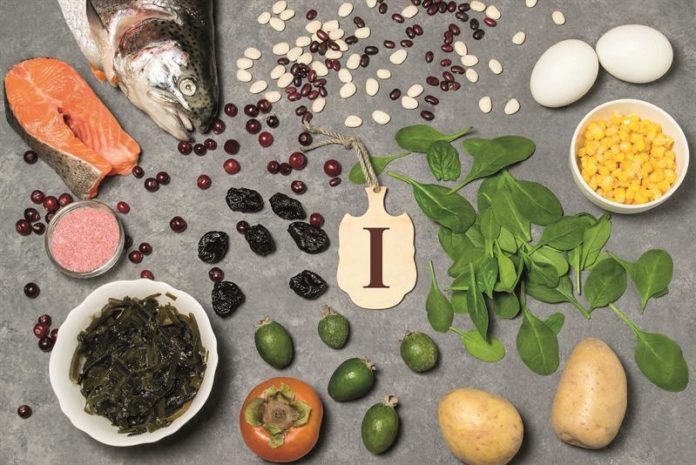A lack of awareness of iodine as a nutrient among the British population could put our children’s futures at risk says an academic at the University of Chester, whose latest research has revealed
that UK residents want a change in policy from Government.
Iodine helps make thyroid hormones, which help to keep cells and the metabolic rate – the speed at which chemical reactions take place in the body – healthy.
The group at greatest risk are unborn and very young children, who rely upon the iodine in their mothers’ diets for their brain development. Despite this, the latest research at the Universities of Chester, Manchester and elsewhere confirm that few are aware of iodine as a nutrient.
A solution in many countries, including China and Australia, is to add iodine to salt intended for human consumption by law. Alternatively, in countries such as Germany, the government funds an education programme to raise awareness. In the UK, the advice from the NHS is merely that a balanced diet should ensure adequate iodine intake. The next review of this policy is this month (March), with many arguing that it must change. Professor Davies plans to publish his research to coincide with this revision.
Professor of Business Strategy at the University of Chester, Gary Davies, said that in his latest survey of 1,003 respondents, “people wanted to see change in government policy to address the problem and preferred an education campaign to a change in the law”.
Current NHS guidance states that eating a balanced diet should ensure an adequate intake of iodine, suggesting only that good sources of iodine include cow’s milk and shellfish.
Professor Davies states that awareness of iodine as a nutrient is relatively low among the UK population, and worryingly low among young women who are of child-bearing age. His research compared the prompted awareness of iodine with that of Vitamin C and Iron.
Professor Davies, who is also an Emeritus Professor of Strategy at Manchester Business School, said: “The research reported that four times as many people were aware of Iron and Vitamin C in the diet compared to Iodine. While a third claimed they had heard of iodised salt we know that very few use it.
“Iodised salt is available, but not all retailers stock it and some brands contain a very low level of iodine. Unless awareness of iodine in the diet is raised, retailers won’t stock iodised salt!
“Due to this lack of awareness, estimates suggest that as many as 50% of children are at risk of not developing their full cognitive potential. This cannot be acceptable in a developed country.”







